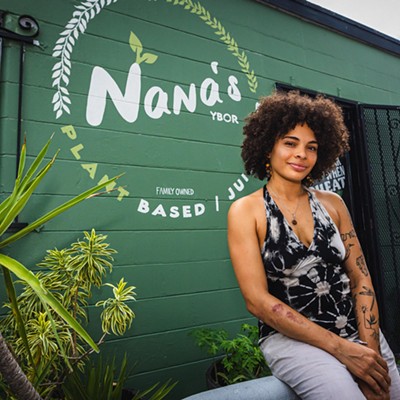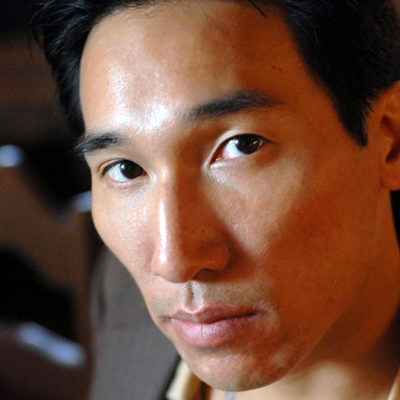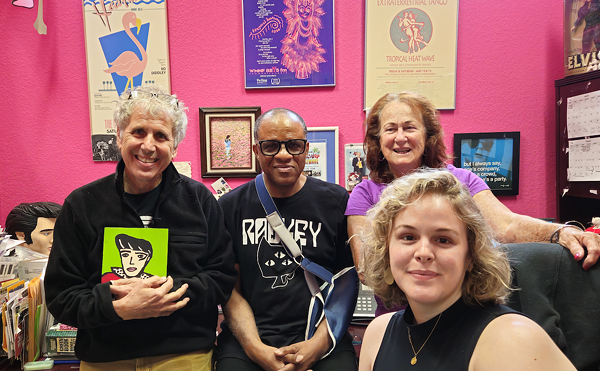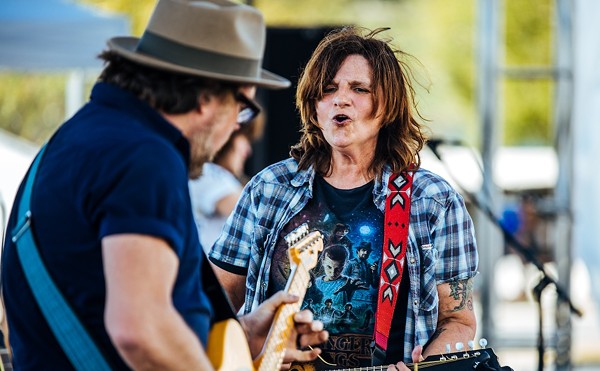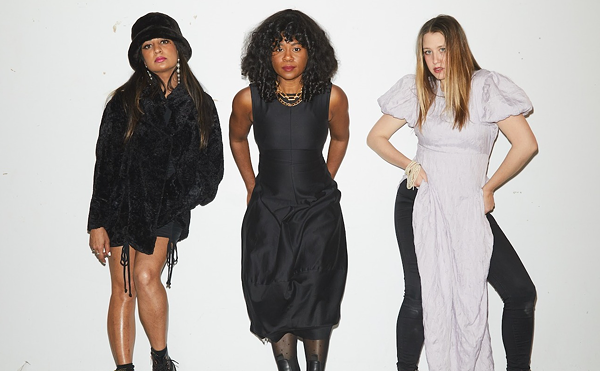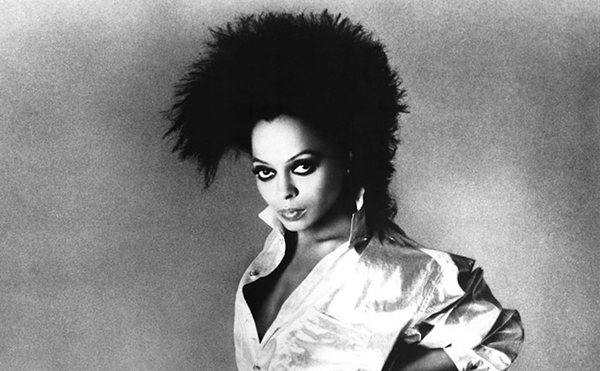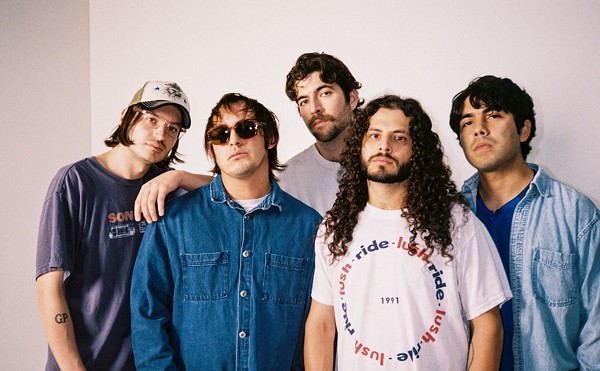I’m no expert when it comes to Afro-Cuban music, a rather broad genre rooted in the heavy influence that African rhythms and ritual had on the island country’s Euro-Spanish sonic landscape beginning in the mid-1800s, when slaves made up half of Cuba’s population.
But I do know what I like. Pulsing, percussive rhythms fueled by swishing claves and thumping bongo or conga, brightened with sultry understated horns or more spirited brass passages; passionate vocals; instrumentals with plenty of room for improvisation. In honor of this week’s Cuban Issue, here are some noteworthy artists practicing Afro-Cuban-rooted sounds, from elder statesmen of more traditional persuasions to contemporary practitioners.
Dizzy Gillespie and Chano Pozo I’ve lumped these two icons together because the Philly trumpet great and Cuban percussion master are widely regarded as responsible for bringing Afro-Cuban rhythms to bebop (nicknamed “cubop”), and for spreading the popularity and practice of Afro-Cuban jazz to their peers (like Tito Puente and Cal Tjader, who further spurred the popularity in the 1950s with their mambo-and-son-infused sounds) and the generations that followed. They collabed on a few songs that have since become genre standards (most notably “Manteca” and “Tin Tin Deo”), and after Pozo’s death in 1948, Gillespie continued to spike his compositions with Afro-Cuban spice.
La Lupe While Cuban-American “Queen of Salsa” Celia Cruz is widely regarded as the most influential female in the history of Cuban music, her lesser-known and more controversial contemporary, La Lupe, came up in the 1950s and ’60s via her Latin soul stylings, which drew on elements of Cuban mambo, Latin jazz and soul music while touching on salsa, bolero and guaracha as well.
Buena Vista Social Club The name “Buena Vista Social Club” has become an umbrella brand representing Cuba’s “musical golden age” and the spirit of the original Havana institution, which held dances and became a popular location for musicians to meet and perform during the 1940s. It was re-appropriated in the ’90s as the name of an internationally successful album by Cuban musician Juan de Marcos González and American guitarist Ry Cooder as joined by vet players of the original ’40s-era club. The name was also used for a subsequent film and two Carnegie Hall performances that followed. At present, new and original members can occasionally be found touring as “Orquesta Buena Vista Social Club.”
Irakere Founded in 1973 by composer/arranger Armando de Sequeira Romeu and pianist Chucho Valdés (original member of Orquesta Cubana de Música Moderna), Irakere is often cited as among the first of the new wave of Afro-Cuban jazz groups that blended elements of the genre with Cuban popular dance music, and incorporated a greater array of Latin percussion into their sound, like batá, erikundis and maracas, abacuá drums, cencerros (cowbells) and guiro. Their self-titled 1980 album earned a Grammy for Best Latin Recording.
Afro-Cuban All Stars Juan de Marcos González recorded the first Afro-Cuban All Stars album, A Toda Cuba le Gusta, in 1997 during the Buena Vista sessions, and his style is similarly heavy on horns, but with more pronounced chachacha, timba, and rumba influences.
Arturo Sandoval A Cuban jazz trumpeter, pianist, composer and protégé of Dizzy Gillespie, Sandoval defected to the U.S. in 1990 after he was threatened with imprisonment for listening to American jazz on the radio. He continues to be a prolific voice in Afro-Cuban jazz, both as a one-time member of Irakere and a solo artist; he has upwards of 40 albums to his credit.
Antibalas Touching on the funky side of things, NYC-brewed Antibalas makes urgent, driving vintage sounds flavored with lots of brass and percussion, and marked by traditional Afrobeat and Afro-Cuban rhythmic tendencies.
Chico Mann The New York area multi-instrumentalist/producer otherwise known as Marcos Garcia cites influences ranging from Willie Colón, Celia Cruz and Fela Kuti to Afrika Bambaataa and Lisa Lisa. His avant garde style of fusion combines elements of ’70s-era Afrobeat, ’80s freestyle and Afro-Cuban music to arrive at a sound that is incredibly compelling and rather unique.
Ibeyi The offspring of Cuba’s famed Buena Vista percussionist Anga Díaz, French-Cuban twin sisters Lisa-Kainde and Naomi Diaz are Ibeyi, which means “twins” in Yoruba. The language and culture of the West African ethnic group contributes greatly to their experimental, downtempo sound, which is rooted in jazz, hip-hop and R&B, and incorporates beats and samples along with organic Afro-Cuban percussion, piano and otherworldly vocal harmonies. It's showcased in a brand-new self-titled debut out this year.
Spam Allstars We used to see this Miami-brewed ensemble frequently, though they’ve been gigging closer to their South Florida hometown the past few years. The Spam Allstars’ “electronic descarga” is a dance-vibing fusion of Afro-Cuban music, funk, hip-hop and dub reggae, their timbales-driven grooves and interplay of flute, trumpet, trombone and sax paired with funky guitar riffs and the samples and scratchwork of turntablist/producer DJ Le Spam.
Palo! Another Miami band, this one plying Afro-Cuban funk and salsa music that had hundreds of people shaking and shimmying when they performed at Tropical Heatwave earlier this year.
Freddy Montes y su son Tampa-based Montes has been practicing Afro-Cuban music most of his life, leading his spirited group — "su son" — on guitar and vocals. The result is a blend of Afro-Cuban rhythms, Latin jazz, son, rumba and traditional Cuban songs given a modern twist, "re-arranged Freddy style" he told me in a recent interview. He's also the nephew of the late great Bebo Valdes; he and cousin Chucho Valdés grew up playing music together in Cuba. Montes y su son play at Ceviche in St. Pete this upcoming Fri., July 24; read more about Montes and his family right here.


